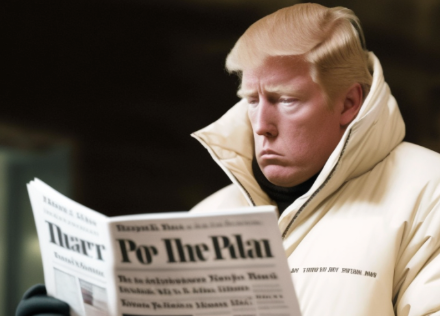$UBER $TSLA $LYFT
#Uber #Transportation #TrumpAdministration #USPolitics #Republicans #Infrastructure #GovernmentPolicy #Economy #Stocks #TransitionTeam #TechIndustry #BusinessNews
President-elect Donald Trump’s transition team is currently evaluating several candidates for the critical role of U.S. Department of Transportation chief. Among these contenders is a former executive from the ride-hailing giant Uber, as well as three Republican congressmen. This appointment could have long-range implications for the future of transportation in the United States, particularly in the technology sector, which is evolving rapidly in areas such as electric vehicles, autonomous driving, and ride-sharing services. With Trump’s policy decisions known for being business-friendly, the possibility of an Uber executive taking this role could suggest a more tech-driven policy approach on infrastructure, mobility, and regulatory matters.
Uber, represented by the stock symbol $UBER, has been a pioneer in disrupting traditional transportation models, especially with its role in the gig economy and ride-sharing industry. If a former Uber executive were to be selected, it could signal a shift in federal transportation policy toward more progressive, tech-oriented frameworks. Given Uber’s capital-intensive expansions into autonomous driving technologies and partnerships with local governments on urban mobility, the market’s focus could quickly shift. Investors and market watchers could anticipate regulatory friendliness, particularly in supporting autonomous and electric vehicles, which rely on massive infrastructure updates. This development could also influence other companies operating in the mobility ecosystem, including competitors like $LYFT and electric vehicle firms like $TSLA.
The inclusion of three Republican congressmen as contenders points to the possibility that the U.S. Transportation Department could alternatively take a more traditional infrastructure-driven approach. These lawmakers could represent more conventional government views focused on highway funding, public transportation, and aviation regulation. A focus on roads and highways, rather than the burgeoning tech fields of mobility and automation, could benefit heavy equipment providers, construction firms, and traditional automakers. However, such a policy slant may not cause the immediate surge in stock prices for growing tech-driven transportation firms like Uber, Lyft, or Tesla, which rely heavily on innovation and regulatory support to push their strategic agendas forward.
For investors, Trump’s ultimate decision for transportation chief could have broad market repercussions. If the position is filled by someone from Uber with extensive private-sector technology experience, it could lead to a rally in the tech and mobility segments, signaling favorable transportation policies. Conversely, the selection of a more traditional figure from Congress could temper those expectations, putting more emphasis on tried-and-true infrastructure spending. Either way, the transportation sector—both in terms of stocks and broader economic infrastructure—will remain an area to watch closely as the U.S. shifts toward new regulatory and economic environments under the incoming administration.











Comments are closed.